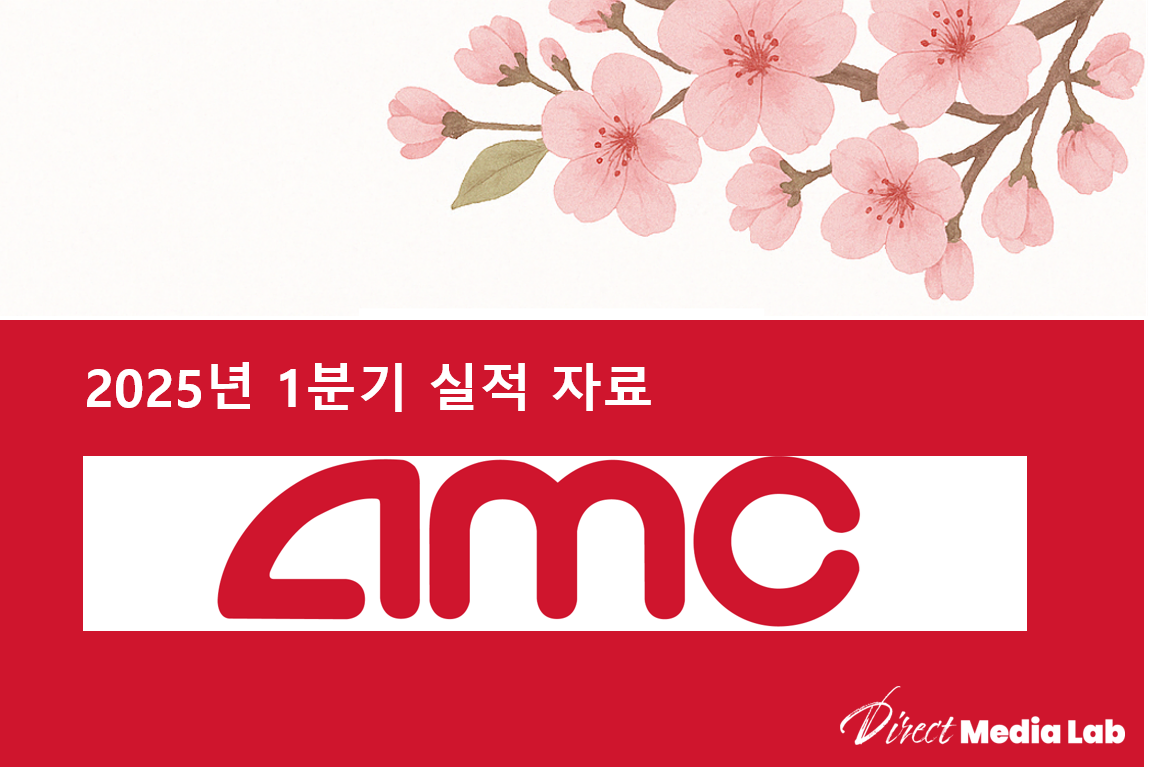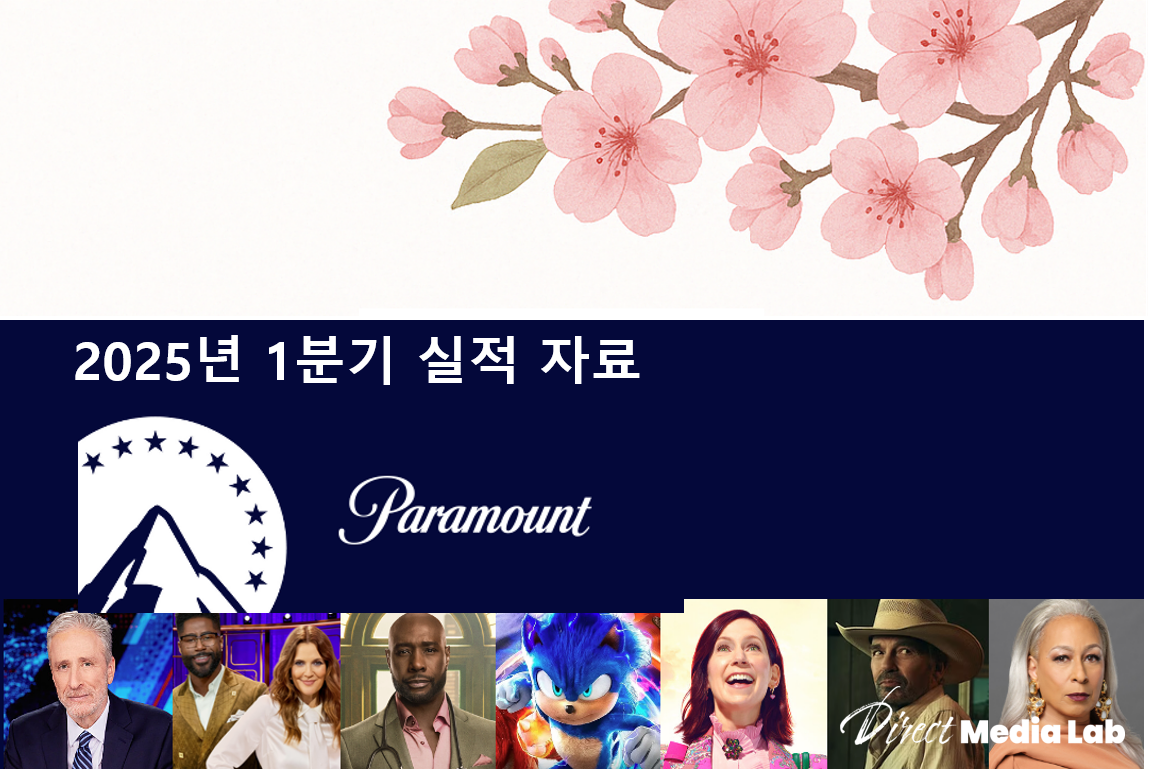[인터뷰] 성임경 KOCCA 베트남 비즈니스 센터장([Interview]LimKyung, Sung, Head of KOCCA Vietnam Business Center)
고삼석 국회 엔터테크 포럼 상임대표 성임경 KOCCA 베트남 비즈니스 센터장 인터뷰. 성 센터장 "베트남이 한류의 뜨거운 열기를 가진 국가로, 한국 콘텐츠의 성공적인 시장 진출과 성과를 이루고 있다" 며 "베트남 현지 정서를 반영한 콘텐츠와 상호 윈윈하는 사업구조의 중요성을 강조"
[인터뷰 Q&A] 성임경 KOCCA 베트남 비즈니스 센터장([Interview Q&A] Lim Kyung, Sun, Head of KOCCA Vietnam Business Center)
진행: 고삼석 동국대 AI융합대학 석좌교수(국회엔터테크포럼 상임대표, 전 방송통신위원회 상임위원)(Samseog Ko, Distinguished Professor, School of AI Convergence, Dongguk University (Permanent Representative of the National Assembly Entertainment Technology Forum, former commissioner Korea Communications Commission)
베트남은 동남아시아 국가들 가운데 한류 열기가 가장 뜨거운 국가 중 하나이다. 한국문화에 대한 선호도가 단연 높다. 베트남은 젊은 나라이다. 전체 국민의 절반 이상이 30대 이하다. 인터넷과 스마트폰 보급률도 매우 높다. 콘텐츠 시장의 규모가 클뿐만 아니라, 성장 속도 또한 빠르다. 그래서 현재보다는 미래가 더욱 기대되는 나라이다.
Vietnam is one of the hottest Hallyu countries in Southeast Asia. There is a strong preference for Korean culture. Vietnam is a young country.
More than half of the population is under the age of 30. Internet and smartphone penetration is very high. Not only is the content market large, but it's growing rapidly. This makes it a country that is more exciting for the future than the present.(Please Check the EN Version of article)

베트남에서 일어나고 있는 'K-콘텐츠 돌풍'의 현재를 분석하고, 미래를 예측하기 위해서 국회엔터테크포럼 상임대표를 맡고 있는 고삼석 동국대 AI융합대학 교수(전 방송통신위원회 상임위원)가 한국콘텐츠진흥원 베트남 비즈니스센터 성임경 센터장을 직접 찾아갔다. 인터뷰는 베트남 현지에서 직업 이뤄졌다. (고삼석 국회 엔터테크 포럼 상임대표가 직업 기사를 작성했다.)
(고삼석 국회 엔터테크 포럼 상임대표, 이하 고) 센터장님, 안녕하세요? 반갑습니다. 종종 외국에 올 때 그 도시에 한국콘텐츠진흥원(KOCCA) 비즈니스센터가 있으면 가급적 시간을 내어 방문하고는 합니다. 베트남 하노이에도 비즈니스센터(이하 'KOCCA 베트남')가 운영 중이어서 이렇게 방문하게 되었습니다. 국내에서 베트남 콘텐츠 시장에 대한 관심이 여전히 높은데, 먼저 KOCCA 베트남의 현황을 간략하게 소개해 주시죠.
(성임경 Kocca 베트남 비즈니스 센터장, 이하 성) KOCCA 베트남에 오신 것을 환영합니다. 저도 베트남에 온 지 얼마되지 않았지만 전임 센터장께서 열심히 해 준 덕분에 큰 무리없이 잘 적응하고 있는 중입니다. 베트남센터는 2020년 10월에 하노이에 설립되었으며 센터장 1명, 베트남 현지채용 직원 4명 총 5명이 근무중입니다. 직원들 모두 한류에 대한 애정이 각별합니다.
KOCCA 베트남은 베트남에 진출하고자 하는 한국 기업에게 현지 정보 제공과 함께 베트남 기업과의 비즈 매칭을 해주는 B2B사업, 베트남에서 한류를 지속적으로 확산하기 위한 B2C사업 등을 진행하고 있습니다.
(고) 베트남은 우리나라와 정치, 경제시스템이 상이합니다만, 베트남 전쟁이라는 아픈 역사를 극복하고 1992년 수교 이후 30년 동안 좋은 관계를 유지해 왔습니다. 우리나라 기업들도 많이 진출해 있고, 한류 팬의 규모나 강도를 보더라도 상상을 초월할 정도입니다. "아시아 한류는 베트남에서 시작되었다"는 말도 있을 정도인데, 베트남 내 한류 현황은 어떻습니까?

(성) 동남아시아 쪽 한류는 이미 하나의 문화트렌드로 자리 잡았다고 해도 과언이 아닐거 같고 특히 베트남은 한류에 대한 선호도가 강한 나라 중의 하나입니다. <2023년 베트남 한류 소비자 심층분석>에 따르면 설문 응답자 1,025명 중 997명(95.3%)이 한류를 좋아한다고 응답했고 국가별 선호도를 비교해 보면 한국문화에 대한 선호도는 44.6%로 1위이고 2위인 미국(10.4%)과 큰 격차가 있습니다.
실제로 베트남에서 한류 열기는 정말 대단합니다. 카페에 들어가보면 베트남 노래(V팝) 보다는 K팝이 더 많이 들립니다. 공원에 가면 베트남 청년들이 한국 가수들의 춤을 따라 추는 것을 쉽게 볼 수 있습니다. 본인들이 한류를 즐기고 있다는 것이 느껴집니다.
(고) KOCCA 베트남은 콘텐츠 제작분야에서 한국과 베트남 기업들의 공동 세미나를 개최하고, 또 베트남 콘텐츠 인력양성 등도 지원하고 있는데, 성과는 어떻습니까? 그리고 이에 대한 베트남 현지 정부나 콘텐츠업계의 반응은 어떻습니까?
(성) 콘텐츠 분야의 제작역량과 인프라가 우리보다는 베트남이 아직 낮은 수준이라서 양국간의 협력과 교류에 대한 이곳의 반응은 매우 좋습니다. 또한 인구가 1억명 정도 되는 만큼 콘텐츠 소비 시장은 오히려 우리나라보다 크고 한류에 대한 선호도가 높기 때문에 한국 콘텐츠의 베트남 시장 진출 성과도 좋은 편입니다. 전망도 밝습니다.
KOCCA 베트남에서 콘텐츠 인력양성을 직접 지원하는 것은 아직 없습니다. 하지만 베트남의 분위기는 인력양성을 통해서 장기적으로 발전 동력을 확보하고자 하는 의지가 보이기 때문에 향후 인력양성에 대한 지원을 할 경우 크게 환영받을 수 있을 것으로 생각됩니다.
(고) 한국과 베트남이 보다 긴밀해 지려면 양국 간 콘텐츠 분야 인력 교류나 대학 간 학생 교류 프로그램 운영도 고려해 볼만 한데, 혹시 진행하고 있는 사업이나 향후 계획이 있을까요?
(성) 국내 대학과 베트남 대학 간 인적 교류도 진행될 수 있다면 좋겠습니다. 장기적으로는 한번 해보고 싶은 사업입니다. 한국이 지원한다면 베트남도 환영할 사업입니다. 현재 연구보고서 작성 시 하노이 국립대 등과 공동으로 작업하고 있습니다. KOCCA 베트남에서 청년 서포터즈도 20여명 정도 운영하고 있는데, 베트남을 포함하여 한-아세안 간 콘텐츠 분야 협력사업을 확대하고, 관련 재원도 확충하면 좋겠습니다.
(고) 6월초 호치민에서 개최된 '텔레필름 2024'에서 KOCCA는 한국공동관을 운영하여 141건의 상담과 942만 달러(약 130억원)의 수출 실적을 달성한 것으로 알고 있습니다. 베트남 콘텐츠 시장의 규모나 현황, 그리고 KOCCA와 우리 콘텐츠 기업들의 활동 성과 등을 설명해 주시죠.
(성) 텔레필름이 방송콘텐츠 마켓이었기 때문에 방송시장을 예로 말씀드리면, TV보급률은 전체가구의 93%에 달하고 시/성별로 운영되는 채널이 있어서 전국에 64개 방송국, 총 103개의 무료 채널이 있습니다.
아직 공식적인 통계조사 같은 것이 미흡해서 베트남 시장규모에 대한 정확한 수치를 알기가 쉽지 않습니다. 또한 시장규모 산출방식도 PWC 등의 분류체계 등과는 달라서 2022년에 콘진원에서 발행한 <해외콘텐츠시장분석>에서도 베트남과 러시아는 빠져 있습니다.
그럼에도 불구하고 역시 한류의 인기로 한국의 방송 콘텐츠가 오리지널이든 리메이크든 관계없이 큰 인기이고 '런닝맨' 리메이크 버전의 경우 2019년 방송 15주만에 2억뷰를 달성했다는 기사도 보도된 바 있습니다. 최근 넷플릭스를 통해 공개된 '눈물의 여왕'도 실시간 시청률 1위를 연속 기록하였습니다.
(고) 한류 관련 연구보고서나 언론 보도를 보면 베트남의 한류는 "'코로나 팬데믹 위기’가 오히려 날개를 달아줬다"는 평가가 있습니다. 비대면 생활이 일상화 되면서 드라마, 영화, 음악 등 온라인 유통 가능한 한류 콘텐츠가 OTT 시장의 급성장과 맞물려 확산되었다는 분석인데, 실제 어떻게 평가하십니까? 베트남 OTT 시장 현황은 어떻습니까?
(성) 다른 나라와 마찬가지로 베트남의 시청자들이 코로나 팬데믹부터 본격적으로 OTT를 이용하게 된 것은 맞습니다. <2023 베트남 비즈니스 가이드북>에 따르면 베트남의 구독형 OTT 매출액이 2018년 1천7백만 달러에서 2023년 6천1백만 달러로 거의 3.5배 이상 증가했습니다.
베트남의 한류 또한 그에 비례해서 성장했다는데 저도 이견이 없으며 오히려 OTT에 따른 한류의 확산은 베트남을 포함한 동남아시아쪽보다도 유럽 등 기존의 한류가 다소 약했던 지역에서 두드러졌을 것으로 생각합니다.

베트남의 OTT시장 규모도 계속 커지고 있고 VieOn, TV360 등 로컬 플랫폼도 사업을 영위하고 있습니다. 다만 우리와 마찬가지로 넷플릭스라는 글로벌 사업자와 경쟁해서 살아남아야 하는 시장이며 로컬 OTT들도 자체적인 경쟁력을 갖기 위한 전략을 모색하고 있습니다.
(고) 한국 드라마나 영화에 대한 베트남인들의 사랑이 큰 만큼 K-콘텐츠 속 베트남 사회나 문화에 대한 몰이해가 사회적 논란이 된 적도 있었습니다. 영화 속에서 베트남 특정 도시를 납치와 살인이 난무하는 범죄도시로 묘사해서 상영금지 처분 받은 적도 있고, 또 베트남 전쟁에 대한 잘못된 내용의 대사로 인해 베트남인들의 분노를 불러일으킨 일도 있었습니다. 한류 확산의 부정적 요인들이라고 할 수 있는데, 이에 대해 어떻게 생각하십니까?
(성) 당연히 굉장히 아쉽고 한류에 찬물을 끼얹을 수 있는 잠재적 위험요소라고 생각합니다. 하지만 아무래도 제작자의 입장에서는 상대 국가의 문화나 현지 정서를 온전히 이해하기 어렵기 때문에 제작과정에서 결과물에 이르기까지 철저한 자문과 고증이 뒷받침되어야 한다고 봅니다.
(고) 한류의 확산과정에서 모바일, 소셜미디어와 같은 기술(Technology)의 영향을 무시할 수 없을 것 같습니다. 특히 코로나 팬데믹 기간 동안에는 한류 확산의 일등 공신이라고 해도 과언이 아닐텐테, 베트남 현지에서 상황은 어떻습니까? 경제 사회 전 분야의 디지털 전환, 인공지능의 사용 등으로 앞으로 콘텐츠와 테크놀러지의 결합은 더욱 촉진, 강화될 것으로 보입니다. 이런 양상이 베트남 혹은 동남아시아 콘텐츠 산업과 시장에서는 어떻게 나타날까요?
(성) 베트남 IT인프라는 굉장히 좋은 편이며 작년 기준 스마트폰 보급률은 96%에 달합니다. 특히 베트남은 평균 연령이 30대 초반인 아주 젊은 국가이기 때문에 스마트폰과 SNS를 활용한 생활이 보편적으로 이뤄지고 있습니다.
젊은 세대일수록 SNS를 통한 정보에 많이 의존하는 경향이 있으며 베트남의 젊은이들도 틱톡 등 SNS에서 접한 콘텐츠와 상품에 더 높은 호감을 갖고 구매를 하고 있습니다.
한국 기업이 베트남 시장에 진출하고, 성공을 거두고자 한다면 젊은 층을 타겟으로 한 전략, SNS의 활용가치를 극대화하는 전략이 반드시 필요할 것으로 생각됩니다.
(고) KOCCA 베트남은 K-콘텐츠를 베트남에 소개도 하지만, 베트남 콘텐츠 산업 발전을 위해서도 여러가지 지원을 하고 있는 것으로 알고 있습니다. 최근 베트남 콘텐츠가 미국 내에서 인기를 끌고 있는데 한국에서도 통할만한 콘텐츠가 있습니까?
(성) 어떤 콘텐츠라고 말씀드리긴 어렵습니다. 다만 얼마전에 한국에서도 베트남 가수의 ‘SEE Tinh’가 일반인은 물론 연예인들 사이에서 크게 유행했던 것처럼 좋은 아이디어와 기획, 중독성만 있으면 뭐든지 통할 수 있을 거라 생각합니다.
베트남 영화 'MAI'도 현재 흥행몰이 중입니다. 흔히 볼 수 있는 로맨스물인데, 로맨스물에 관한 한 경쟁력을 갖춘 한국에서 통할 수 있을지는 의문입니다. 다만 콘텐츠의 속성 상 언제, 어떤 작품이 갑자기 터질지는 아무도 모릅니다.
(고) 지난해 한국 콘텐츠 수출은 사상 최대 규모를 기록했습니다. 올해도 기록을 이어갈 것으로 예상합니다. 글로벌 콘텐츠 시장에서 우리나라의 위상이 커진만큼, KOCCA에 더 많은 역할을 기대하고 있습니다. K-콘텐츠나 한류가 이제 양적 성장의 시대를 넘어서 질적 성장, 성숙의 시대로 들어가야 한다는 지적도 있습니다. 센터장님께서는 어떻게 생각하십니까? 현장에서는 어떻게 대응하고 있습니까?
(성) 100% 동의합니다. 제가 전에 어떤 자리에서 한류의 지속성에 대해 얘기하던 중에 ‘한류는 진화하는 문화현상’이라고 생각한다고 말한 적이 있습니다. 과거 한류의 초창기에는 이렇게 유행하다가 사라질 거라 말씀하신 분들도 많았지만 이제는 그런 말씀 하시는 분은 찾기 어렵습니다.
한류 4.0의 시대를 넘어 이제 5.0의 시대를 여는 누군가가 혹은 어떤 콘텐츠나 상품이 등장할 거라 생각합니다. 다만, 일방적인 수출보다는 호혜적인 관점에서 우리도 상대 국가에 주는 것이 필요하다고 생각합니다. 그것이 인력 교류가 될 수도 있고 공동제작이 될 수도 있을 것입니다. 그런 측면에서 보면 국가간 ODA도 한류의 지속을 위해 좋은 장치가 될 수 있을거라 생각합니다.
저희 베트남센터도 일방적인 한류의 전파라는 사고보다는 양국의 사업자가 상호 윈윈하는 사업구조라야 지속가능하다는 생각으로 사업을 추진하고 있습니다. 일방적인 관계는 상대가 지치고 결코 오래가지 못합니다.
(고) 베트남의 한류 확산과 관련하여 지속가능성이라는 관점에서 국내 콘텐츠 제작 및 유통사업자들, 그리고 유관사업자들에게 당부하고 싶은 말씀이 있다면 한 말씀 해 주시죠.
(성) 우리 수준이 베트남보다 우월하다는 시각을 갖고 접근하시면 절대 안됩니다. 베트남은 우리보다 아직 소득수준을 포함한 전체적인 경제수준은 낮지만 콘텐츠에 대한 눈높이는 절대 낮지 않습니다. 우리 스스로 만족할만한 완성도라고 느끼고 우리가 재미있다고 느껴야 비로소 이곳에서도 승산이 있습니다. 또한 베트남 현지 정서에 반하지 않은 콘텐츠라야 이용자들의 공감을 이끌어낼 수 있습니다.
[Interview Q&A] Kyung Sung, Lim Head of KOCCA Vietnam Business Center)
Samseog Ko, Distinguished Professor, School of AI Convergence, Dongguk University (Permanent Representative of the National Assembly Entertainment Technology Forum, former commissioner Korea Communications Commission)
Vietnam is one of the hottest Hallyu countries in Southeast Asia. There is a strong preference for Korean culture. Vietnam is a young country. More than half of the population is under the age of 30. Internet and smartphone penetration is very high. Not only is the content market large, but it's growing rapidly. Therefore, the future is more promising than the present.
To analyze the current situation of the 'K-content boom' in Vietnam and predict the future, Ko Sam-seok, a professor at Dongguk University's School of AI Convergence, who is also the Permanent Representative of the National Assembly's Entrepreneurship Forum (and a former member of the Korea Communications Commission), visited KOCCA's Vietnam Business Center.

(When I come to a foreign country, if there is a KOCCA business center in the city, I always take the time to visit it. We have a business center in Hanoi, Vietnam (hereinafter referred to as 'KOCCA Vietnam'), which is why I decided to visit. There is still a lot of interest in the Vietnamese content market in Korea, so please give us a brief introduction to the current status of KOCCA Vietnam.
(Sung) Welcome to KOCCA Vietnam. I've just arrived in Vietnam, but thanks to the hard work of my predecessor, I'm adjusting well. The Vietnam Center was established in Hanoi in October 2020 and has five employees, including one center manager and four locally recruited employees. All of them are passionate about the Korean Wave.
KOCCA Vietnam provides local information to Korean companies that want to enter Vietnam, and conducts B2B business matching with Vietnamese companies, and B2C business to continue to spread Korean culture in Vietnam.
(Vietnam has a different political and economic system than Korea, but we have overcome the painful history of the Vietnam War and have maintained good relations for 30 years since the establishment of diplomatic relations in 1992. Many Korean companies are present in Vietnam, and the scale and intensity of Hallyu fans is beyond imagination. It has been said that "the Asian Hallyu started in Vietnam," what is the current status of the Hallyu in Vietnam?

(Sung) I think it would not be an exaggeration to say that Hallyu has already become a cultural trend in Southeast Asia, and Vietnam is one of the countries with a strong preference for Hallyu.
According to the <In-depth Analysis of Hallyu Consumers in Vietnam in 2023>, 997 out of 1,025 survey respondents (95.3%) said that they like Hallyu, and when comparing preferences by country, the preference for Korean culture is 44.6%, which is a big gap from the second place, the United States (10.4%).
In fact, the Hallyu craze in Vietnam is huge. When you walk into a cafe, you'll hear more K-pop than Vietnamese songs (V-pop). When you go to the park, you can easily see young Vietnamese people dancing along to Korean singers. I can feel that they are enjoying Korean culture.
(KO) KOCCA Vietnam has been organizing joint seminars between Korean and Vietnamese companies in the content production field, and also supporting the training of Vietnamese content human resources. How have the results been, and what is the response from the local government and content industry in Vietnam?
(Sung) Vietnam's production capabilities and infrastructure in the content field are still lower than ours, so the response to cooperation and exchanges between the two countries is very good. Also, with a population of about 100 million, the content consumption market is larger than ours, and there is a high preference for Hallyu, so Korean content is doing well in Vietnam. The outlook is also bright.
KOCCA Vietnam has not yet provided direct support for the development of content human resources, but the atmosphere in Vietnam shows a willingness to secure long-term development through human resources development, so I think that any future support for human resources development would be greatly welcomed.
(Ko) In order to bring Korea and Vietnam closer together, it would be worth considering exchanging manpower in content fields or running student exchange programs between universities, do you have any ongoing projects or future plans?
(Sung) It would be great if we could organize human resource exchanges between Korean universities and Vietnamese universities. It's something I would like to do in the long run. If Korea supports it, Vietnam will also welcome it. Currently, we are collaborating with Hanoi National University on the research report. KOCCA Vietnam also has about 20 youth supporters, and I would like to see more cooperation projects in the content sector between ASEAN and Korea, including in Vietnam, as well as more financial resources.
(I understand that KOCCA operated the Korean Pavilion at the Telefilm 2024 event in Ho Chi Minh in early June, which resulted in 141 consultations and USD 9.42 million (approx. KRW 13 billion) in exports. Please describe the size and status of the Vietnamese content market and the achievements of KOCCA and Korean content companies.
(Sung) Telefilm was the broadcasting content market, so if I take the broadcasting market as an example, the TV coverage rate is 93% of all households, and there are channels operated by city and province, so there are 64 stations and 103 free channels nationwide.

It is not easy to know the exact size of the Vietnamese market because there is still a lack of official statistics, and the market size calculation method is different from PWC's classification system, so Vietnam and Russia are not included in the Overseas Content Market Analysis published by Konjinwon in 2022.
Nevertheless, due to the popularity of the Korean Wave, Korean TV content is very popular regardless of whether it is an original or a remake, and it was reported that the remake version of 'Running Man' achieved 200 million views in 15 weeks of broadcasting in 2019. The recent Netflix release of "Queen of Tears" has also been the number one show in real-time viewership.
(Ko) According to research reports and media reports on the Korean Wave, "the 'corona pandemic crisis' has given wings to the Korean Wave in Vietnam". This analysis suggests that Hallyu contents such as dramas, movies, and music that can be distributed online have proliferated in line with the rapid growth of the OTT market as non-face-to-face life has become more commonplace. What is your assessment of the current state of the OTT market in Vietnam?
(Sung) It is true that viewers in Vietnam, like in other countries, have been using OTT in earnest since the coronavirus pandemic, and according to the Vietnam Business Guidebook 2023, Vietnam's subscription OTT revenue has increased by nearly 3.5 times, from US$17 million in 2018 to US$61 million in 2023.
I don't disagree that the Korean Wave in Vietnam has also grown proportionally, and I believe that the spread of the Korean Wave through OTT has been more pronounced in Europe and other regions where the Korean Wave has been somewhat weaker than in Southeast Asia, including Vietnam.
The size of the OTT market in Vietnam continues to grow, and local platforms such as VieOn and TV360 are also operating. However, like us, they have to compete with global players such as Netflix to survive, and local OTTs are also looking for strategies to have their own competitiveness.
(As Vietnamese people have a great love for Korean dramas and movies, there have been cases where K-content has caused social controversy due to the lack of understanding of Vietnamese society and culture. In one case, a movie was banned for depicting a city in Vietnam as a criminal city where kidnappings and murders were rampant, and in another case, a movie was banned for making inaccurate statements about the Vietnam War, which sparked outrage among Vietnamese people. What do you think of these negative factors in the spread of Hallyu?
(Sung) Of course, it is very unfortunate and I think it is a potential risk factor that could put cold water on the Hallyu. However, I think it is difficult for producers to fully understand the culture and local sentiment of the other country, so thorough consultation and research must be supported from the production process to the final product.
(Ko) It seems that the influence of technology such as mobile and social media cannot be ignored in the process of spreading the Korean Wave, especially during the pandemic.
How is the situation in Vietnam? With the digital transformation of all sectors of the economy and society and the use of artificial intelligence, the combination of content and technology is expected to be further promoted and strengthened in the future. How does this manifest itself in the content industry and market in Vietnam or Southeast Asia?
(Sung) Vietnam's IT infrastructure is very good, and as of last year, the penetration rate of smartphones was 96%. Especially since Vietnam is a very young country with an average age of early 30s, smartphones and social media are commonplace.
The younger generation tends to rely more heavily on information through SNS, and young people in Vietnam are also more likely to purchase content and products that they have seen on Social Media Service such as TikTok.
If Korean companies want to enter the Vietnamese market and achieve success, I think it is essential to have a strategy that targets young people and maximizes the value of social media.
(Ko) KOCCA Vietnam not only introduces K-content to Vietnam, but also supports the development of the Vietnamese content industry. Recently, Vietnamese content has been gaining popularity in the U.S. Do you think there is any content that would work in Korea?
(Sung) It's hard to say which content. However, I think anything can work if it has a good idea, planning, and addictiveness, just as Vietnamese singer SEE Tinh's "SEE Tinh" was a big hit among celebrities as well as the general public in Korea not long ago.
The Vietnamese movie 'MAI' is also currently doing well at the box office. It's a typical romance movie, and it's doubtful that it will work in Korea, which has a competitive edge when it comes to romance movies. However, due to the nature of content, you never know when or if something will suddenly break out.
(Ko) Last year, Korean content exports were the largest ever. We expect to continue the record this year. As Korea's position in the global content market has grown, I expect KOCCA to play a greater role. It has been pointed out that K-content or Hallyu should move beyond the era of quantitative growth and enter the era of qualitative growth and maturity. What do you think, and how are you responding on the ground?
(Sung) I agree 100%. I was talking about the persistence of the Korean Wave at a conference once and said that I think it's an evolving cultural phenomenon. In the early days of Hallyu, there were many people who said that it would be a fad and then disappear, but it's hard to find people who say that now.
I think there will be someone or some content or product that will usher in the era of 5.0, beyond the era of Hallyu 4.0. However, I think it is necessary for us to give to the other country from a reciprocal perspective rather than unilateral export. It could be manpower exchange or co-production. In that sense, I think ODA between countries can be a good device for the continuation of Hallyu.
At the Vietnam Center, we are also promoting our business with the idea that it is only sustainable if it is a mutually beneficial business structure for both countries, rather than a one-way propagation of the Korean Wave. One-sided relationships are exhausting and never last long.
(Ko) Do you have any words of advice for local content production and distribution companies and related businesses regarding the spread of the Korean Wave in Vietnam from a sustainability perspective?
(Sung) We should never approach Vietnam with the perspective that our level is superior to that of Vietnam. Vietnam's overall economic level, including income, is still lower than Korea, but their standards for content are not lower.
We need to make sure that we are satisfied with the quality of our content and that we find it entertaining, and then we can win here. We also need to make sure that our content is not offensive to local sentiment, so that it resonates with our users.
뉴스레터를 구독하세요.
지금 뉴스레터를 구독하세요.






![[프리미엄 리포트] 미국 케이블TV 2025, 변화와 미래 전략](https://storage.googleapis.com/cdn.media.bluedot.so/bluedot.directmedialab/2025/05/vj931j_202505270106.png)




